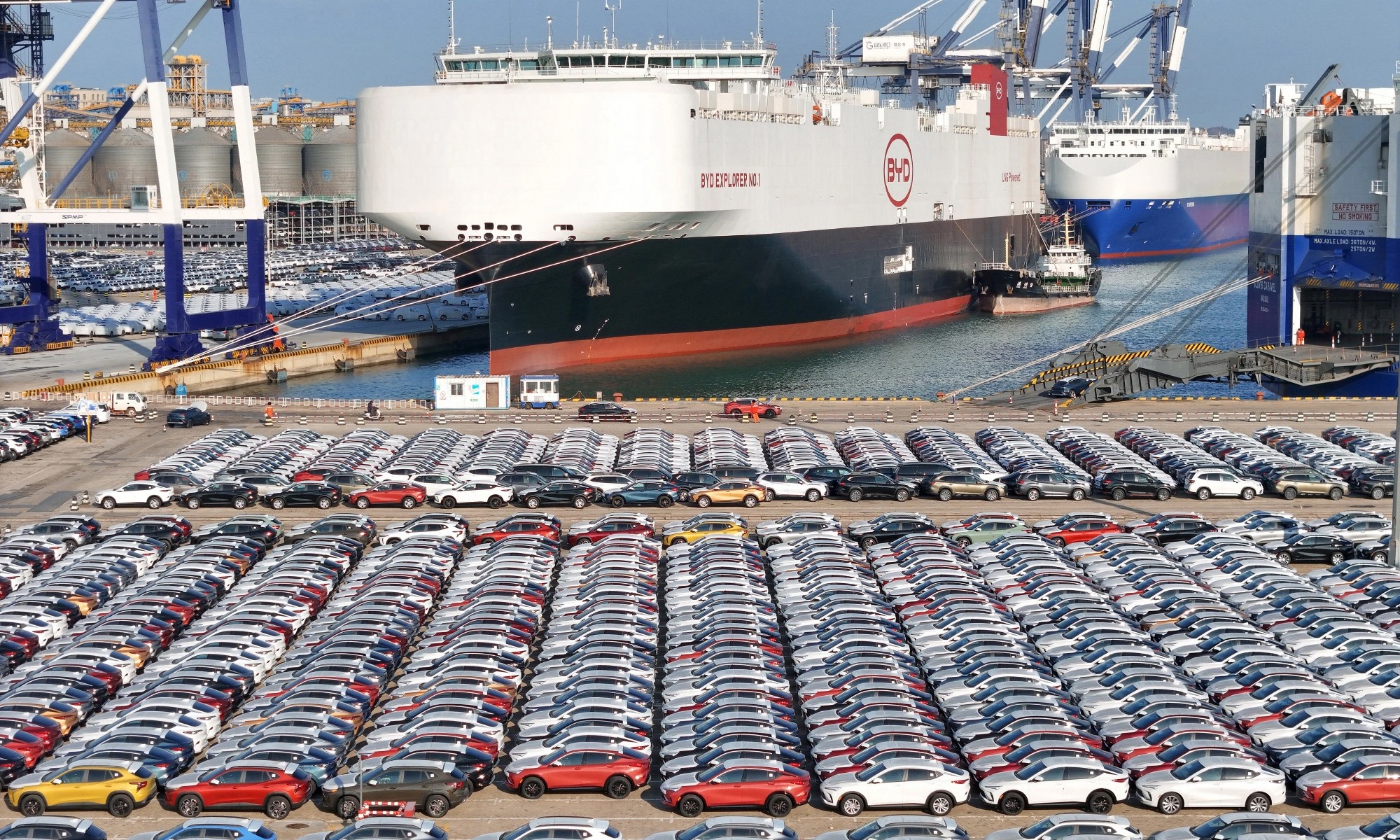On 11/9, China's Ministry of Commerce responded to Mexico's plan to raise import tariffs on cars. They stated they would closely monitor the situation and carefully evaluate Mexico's final measures.
The ministry hopes "Mexico will exercise maximum caution and think carefully before acting." They noted that the two countries are important trading partners and do not want economic cooperation to be affected.
"China will take necessary countermeasures to safeguard its legitimate rights and interests," the statement said.
 |
Electric vehicles await loading onto the BYD Explorer No.1 at Yantai port, Shandong province. Photo: AFP |
Electric vehicles await loading onto the BYD Explorer No.1 at Yantai port, Shandong province. Photo: AFP
On 10/9, Mexican Economy Minister Marcelo Ebrard said Mexico would increase tariffs on cars imported from China and other Asian countries to 50%. This is part of a tax overhaul the government is undertaking to protect domestic jobs. The current import tariff on Chinese cars is 20%.
According to Ebrard, the measure is within the World Trade Organization (WTO) limits and aims to protect jobs as Chinese cars enter the domestic market below the reference price. "Without a certain level of protection, we can hardly compete," he said. The tax increase still needs to be approved by the parliament and will take effect 30 days later.
Previously, amid escalating trade tensions with Washington, Beijing retaliated by tightening controls on minerals essential for high technology and car production. Chinese companies now dominate the supply of many of these minerals.
Experts believe that, in addition to protecting domestic production, Mexico's move is also intended to appease US President Donald Trump. He recently urged Latin American countries to limit trade relations with the world's second-largest economy.
Mexico is currently the top destination for Chinese car exports, according to the China Passenger Car Association. Between 6/2022 and 7/2024, more than 10 Chinese car and parts manufacturers invested 7 billion USD in Mexico. It is unclear how many projects have been completed. Chinese electric vehicle giant BYD has not yet built a factory in the North American country as planned.
Mexico currently benefits from the United States-Mexico-Canada Agreement (USMCA). However, the USMCA stipulates that to be exempt from tariffs, cars must have a large amount of parts produced within the bloc, and this is also the most labor-intensive sector in Mexico. This forces them to support the domestic car industry.
However, Eugene Hsiao, Head of China Equities Strategy at Macquarie Capital, believes that Chinese cars are mainly gaining market share from other Asian brands, not Western ones. Even with a 25% tariff increase, "the price advantage of many Chinese models is unaffected".
Ha Thu (according to Reuters, CNBC)












